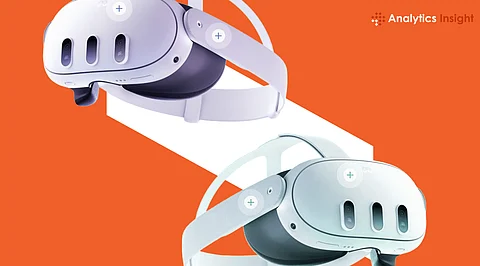

Meta has shifted its focus to the release of the ultra-light mixed-reality headset by the end of 2026, while pushing the previously speculated Quest 4 series aside. Rumors suggest that, unlike the previous-generation headsets, which incorporated all-in-one designs.
The new Meta device, codenamed "Puffin," will feature a tethered compute puck for heavy-duty processing, with a targeted weight of under 110 grams.
According to internal reports, two versions of the Quest 4 have been canceled: "Pismo Low" and "Pismo High." These models were expected to launch next year as standard and premium models. Alongside this, Meta also canceled La Jolla, its high-end headset slated for 2027.
By canceling these projects, Meta is now serious about developing innovative, lightweight designs rather than traditional VR headsets.
The Puffin headset is described as resembling bulky glasses, and it offloads battery and processing into a small puck externally. This tethered compute puck is supposed to be pocket-sized and keeps the headset really lightweight.
Importantly, Puffin will not utilize handheld controllers but rather use eye tracking and gesture controls, much like the Apple Vision Pro. The device will run on Meta's Horizon OS for productivity and entertainment.
Meta remains at the exploration level of different display technologies and price points for Puffin, with no final decisions made yet. The company is looking at this device as a portable multi-monitor system where a user can create virtual screens anywhere.
This feature targets professional productivity and engaging entertaining areas so as to draw more people besides just gamers.
Meta's preference for Puffin may well be a reflection of the gradual tilt towards lighter and more flexible avenues in mixed reality. The focus seems to be on creating hardware suitable for productivity users and simple consumers, without insisting too much on the gaming-oriented hardware.
This may delay the direct succession of the Quest 4 series. However, with partnerships from Asus and Lenovo, that gap in the gaming headset market might be filled. This flexible approach by Meta points to the continuous innovations in the evolving XR market.
